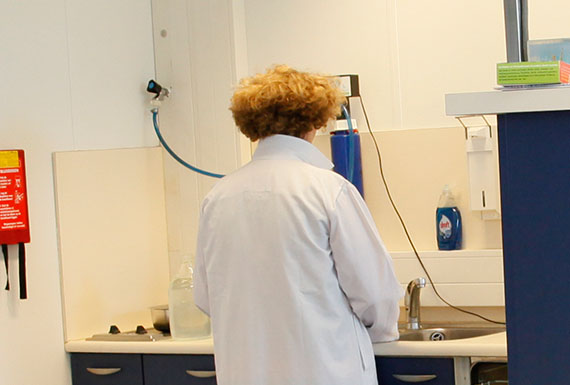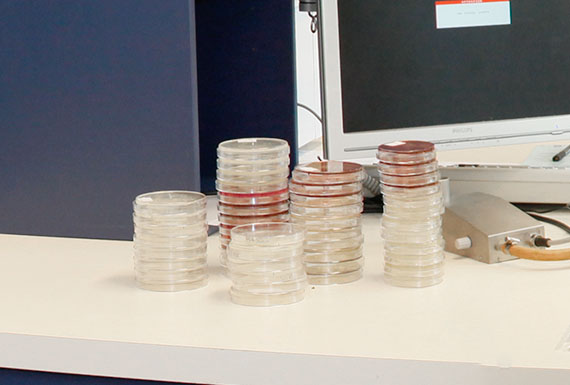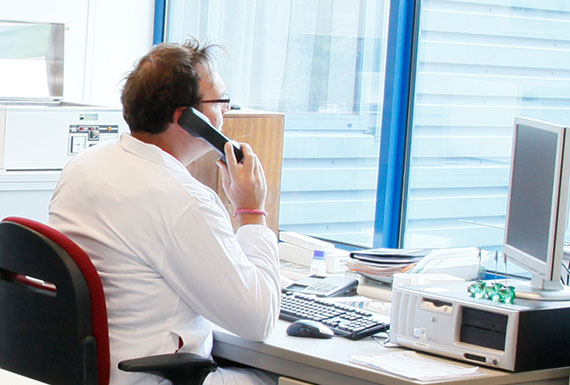The Laboratory
The laboratory plays a key role in terms of food safety. This is where staff test all the raw materials used in producing calf milk. Only once the consignment has been tested and approved is the truck driver allowed to unload his delivery.
In addition to stringently testing the raw materials, the laboratory also examines the end product, veal. This has to be 100% approved in order to be safe to eat.
Better life hallmark & SKV
Better life hallmark

Some of the veal available has been awarded the Bette Life Hallmark by the Dutch Society for the Prevention of Cruelty to Animals. This veal meets extra high standards in terms of animal welfare. All calves have a haemoglobin content of at least 6 millimoles per litre of blood, for instance, whereas the legal requirement is 4.5. This level eliminates the risk of any calves becoming anaemic. Other criteria include all calves being able to drink at the same time and receiving twice as much fibre-rich roughage as legally stipulated. Meanwhile, the stalls are designed to be more comfortable for the calves when walking around or lying down. Transport to the veal farm never takes more than 8 hours or involves a distance greater than 500 km, and transport to the slaughterhouse takes at most 4 hours or is a distance of max. 250 km.
Food safety

The quality and food safety requirements are transparent. Veal products can be traced back to the farm where each particular calf was born and raised. Daily tests at all stages of the production chain offer the consumer extra reassurance.
Food safety is a high priority. When drawing up the rules, the veal companies work closely with Dutch trade associations Productschappen Vee, Vlees en Eieren, national governments, European bodies and universities.
SKV

In 1990, the companies themselves took the initiative to set up, in collaboration with the Dutch government, the Stichting Kwaliteitsgarantie Vleeskalversector (SKV). This is an independent inspection body which monitors the quality of calf feed and veal. SKV inspectors guarantee that the veal is ‘clean’, meaning it contains no substances that do not belong there. Veal is guaranteed to be free of illegal growth hormones, and it contains no residual medicines. It is absolutely safe to eat.
This is the end of the tour Laboratory. Choose another link in the chain or use the red arrow on the right to navigate back to the floor plan.